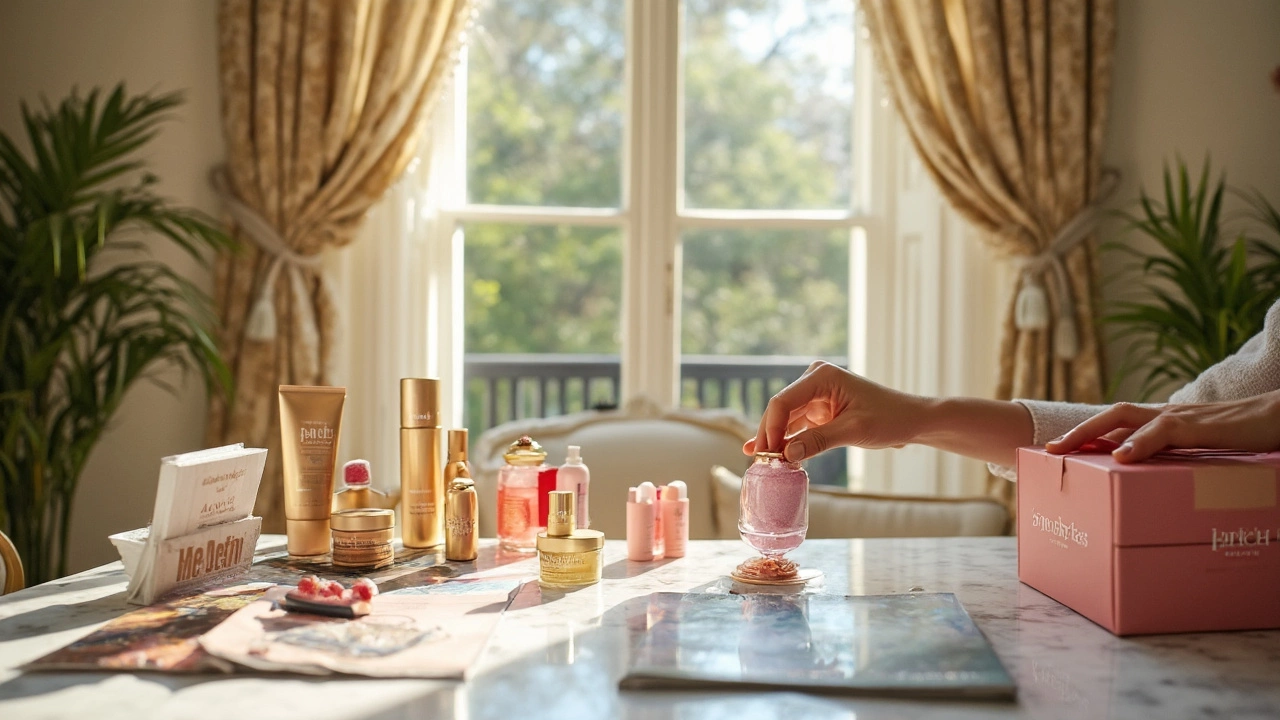Just a few years ago, my Instagram DMs were overflowing with “Is Birchbox still around?” and “Who even owns Birchbox now?” You weren’t alone. The beauty box that once sat on every influencer’s dresser suddenly vanished from headlines. But whenever I drop the name at brunch, it still sparks debate. Is Birchbox a relic of millennial nostalgia, or does it have a new lease on life? The answer, as it turns out, is more twisty than an eyeliner pencil on a humid day.
The Birchbox Boom and Business Evolution
Birchbox launched in 2010 with a killer idea: pay a monthly fee, get a surprise box of beauty samples delivered to your door. It was a genius move in the days when “unboxing” was practically a job title and discovering indie brands was half sport, half obsession. By 2014, the company had shipped over a million boxes a month. Investors poured in $60 million, seeing Birchbox as the new darling of online retail.
But things got complicated. More copycat boxes appeared, from Ipsy to Allure Beauty Box, and even stalwarts like Sephora hopped on the bandwagon. Customer tastes changed. Instead of curated surprises, people wanted full-sized products or more control over what arrived. Slowly but surely, the novelty faded. By 2018, Birchbox was trimming staff, flirting with new formats, and struggling financially. At one point, rumors swirled that even Walgreens was looking into merging the beauty box with pharmacy aisles—imagine picking up shampoo samples with your flu shot.
Still, the company didn’t disappear. Instead, Birchbox slid quietly away from the frontlines, exploring new partnerships and revenue sources. For those who hung around, the DNA of the brand—discovery, simplicity, and a low-pressure intro to beauty trends—remained. But what about its boardroom drama?
Private Equity Makes Its Move
Things came to a head in late 2021 when FemTec Health—a wellness and health-tech outfit focused on female consumers—snapped up Birchbox in an all-cash deal reportedly valued around $45 million. If you haven’t heard of FemTec, here’s the gist: they blend science, digital health, and personalized consumer products for women. The natural fit? Their CEO, Dr. Kimberly Capone, was looking to turn the Birchbox subscriber base into a pipeline for custom health and wellness items, not just makeup samples.
It wasn’t your typical buy-out. Rather than simply expanding Birchbox, FemTec’s plan leaned on digital health. They envisioned boxes tailored not just by style preference, but also hormonally (think: skincare for PMS, fertility vitamins, or even mental health support packets). Some longtime subscribers were excited. Others, like my friend Erika, rolled their eyes and said, “I just want tiny lip glosses, not a telehealth session.”
During 2022 and 2023, Birchbox lived a bit like a lab experiment. The brand stopped chasing wild growth and instead integrated its data with FemTec’s wider tech projects. The monthly deliveries didn’t disappear, but instead, they transformed—expect data-driven product recommendations, more partnerships with health and wellness brands, and the occasional digital health perk baked in.
Birchbox is now part of a wider movement, using consumer data far smarter (or more creepily, depending on your take) than just guessing your taste in shampoo. Some analysts pointed out that this pivot helped Birchbox ride out a subscription box slump that took out dozens of competitors. Also, Birchbox’s previous majority shareholder, Viking Global Investors, gradually faded from prominence—by 2025, there’s little evidence they hold any material stake.

Birchbox Ownership: Details, Data & Key Players
So, who owns Birchbox now? As of July 2025, ownership sits firmly in FemTec Health’s portfolio. Their team runs the strategic direction, digital platform, and product curation. Dr. Kimberly Capone still calls the shots as CEO. The people who founded Birchbox, Katia Beauchamp and Hayley Barna, both exited executive roles years ago. Katia briefly served as CEO under FemTec, but that ended by 2023 as the health-tech integration shifted gears.
If you want the who’s-who breakdown, check out this snapshot table:
| Stakeholder | Role in Birchbox (2025) | Notes |
|---|---|---|
| FemTec Health | Parent Company / Owner | Acquired in 2021, guides strategic pivot |
| Dr. Kimberly Capone | CEO, FemTec Health | Oversees Birchbox vision/direction |
| Katia Beauchamp | Co-founder, former CEO | Exited executive role by 2023 |
| Hayley Barna | Co-founder | Departed earlier, not involved as of 2025 |
| Viking Global Investors | Former Majority Stakeholder | No current material stake |
If you’re a beauty box power-user, here’s the punchline: FemTec Health, a private company with tech and health ambitions, holds full control. Birchbox exists now as an arm of a much broader digital health and consumer wellness strategy.
One quirky tidbit: in 2023, Birchbox briefly considered a pop-up partnership with Calm, the meditation app, to create well-being “mindfulness boxes.” If you skipped those, you missed cute lavender sleep patches and mindfulness journals (Declan swears the lavender put him straight to sleep for once, which is a near-miracle honestly).
What This Means for Subscribers & Beauty Brands
So, what about all the folks who loved getting a five-mini bottle surprise in the mail? Subscriptions still exist, but they’re noticeably different in 2025. Data fuel personalization on another level. Expect Birchbox questionnaires to ask about health preferences, not just skin type or color. Some boxes might ship with supplements or health-focused samples alongside your lip gloss. Beauty brands who want to partner are expected to offer data-friendly info for product matching—sometimes even pairing up with third-party wellness apps.
Here’s a quick list of how the shift has changed things for the Birchbox ownership experience:
- Personalization leans heavily on health and wellness data—not just beauty preferences.
- Exclusive brand partnerships now focus on “holistic beauty”—skin, hair, mood, nutrition.
- Sampling still exists, but many brands offer full-size product incentives for tracking health goals.
- User privacy has become a hot topic; Birchbox/FemTec promise advanced encryption but privacy-minded users should read the new policies carefully.
- Boxes sometimes come with digital coupons for health services—think fitness app trials or telehealth for skin consultations.
Brands interested in joining Birchbox in 2025 need to accept the data-first approach, which can be polarizing. Indie beauty labels sometimes struggle to keep up with the technical side but get a massive potential audience if they do.
On the flipside, some old-school box fans miss the low-key monthly surprise vibe. Social media feedback has been split—those interested in wellness and personalized beauty praise the change, while others miss the retro thrill of pure beauty discovery. If you’re skeptical, Birchbox occasionally drops “classic throwback” boxes—limited-edition runs for loyalists who want the old experience, featuring cult favorites from the early 2010s.
Finally, if you’re just looking for tips? Always review the latest Birchbox privacy and data use policies; they’re updated often. And don’t toss out those wellness samples—decluttering queen that I am, supplements and beauty snacks usually fly off my bathroom shelf way faster than face serums ever did.

